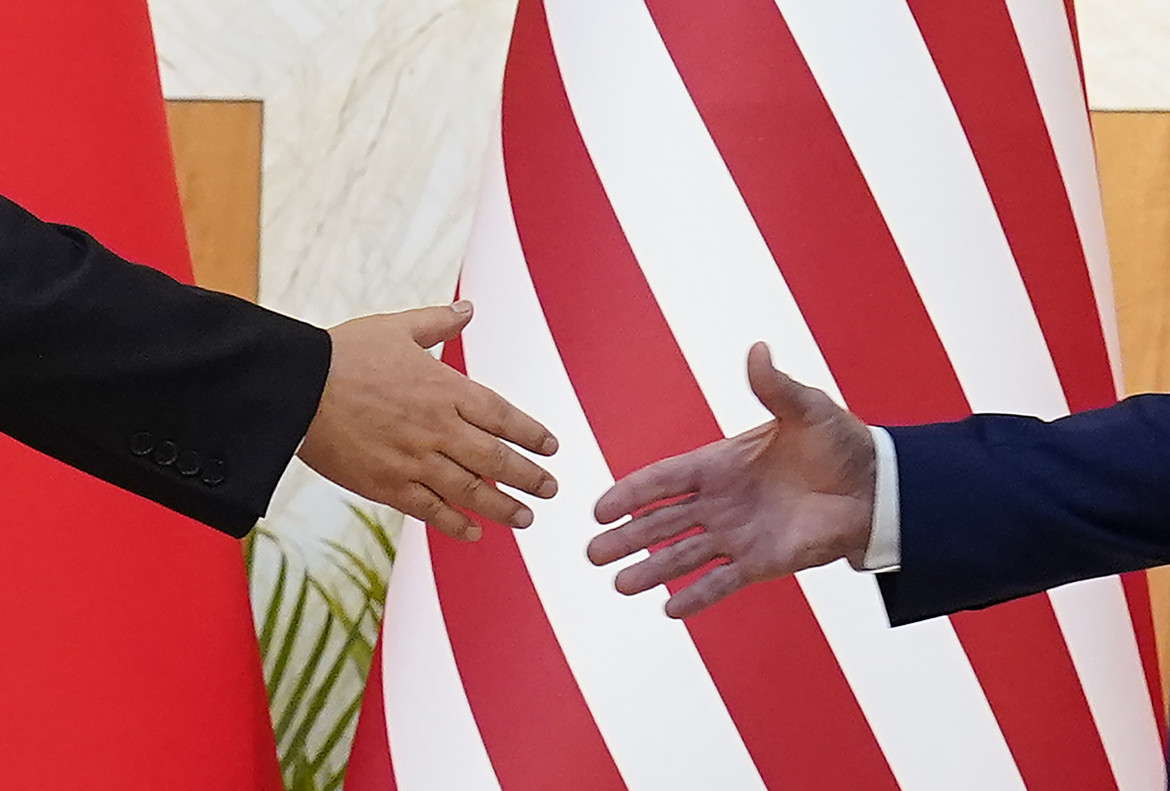Analysis
Why China may want to thaw relations with the US, post-Pelosi visit
Xi Jinping reiterated to Biden that China was a firm “no” on any possibility of the use of nuclear weapons. And the reference to Putin was not at all subtle.

It was probably the most important diplomatic meeting of the year, lasting for more than three hours, and, although it didn’t come with great expectations, it showed some important signs of a possible détente between China and the United States.
In Bali, Indonesia, where the G20 is being held and where there will be a whirlwind of important diplomatic meetings, Xi Jinping and Joe Biden met in person for the first time since they have been the presidents of their respective countries, after a series of virtual calls and meetings (they had previously met several times before each had reached the top position in their governments).
Not much was expected from this meeting because China and the United States were at the lowest point in their relations: the summer crisis in Taiwan, following the visit of House Speaker Nancy Pelosi, had disrupted communications between Beijing and Washington. But it was already evident from the days before the summit that something was changing: both the Financial Times and the Wall Street Journal reported statements from both Chinese and American officials that Xi Jinping had no advance knowledge from Putin about his intentions to invade Ukraine. This is a sign of some sort of a Chinese repositioning, all the more important because it comes at a time when the U.S. administration seems to want to emphasize the need to end the war in every way it can.
Not coincidentally, as he also did with Chancellor Scholz on his visit to Beijing a few weeks ago, Xi Jinping likewise reiterated before Biden that China was a firm “no” on any possibility of the use of nuclear weapons. And the reference to Putin was not at all subtle.
Beijing must have picked up on the winds of a reset, or perhaps simply wanted to put a meeting that was shaping up to be rather tense on the right track. The Biden-Xi meeting also ended up yielding some signals that were not expected, such as Biden saying at a press conference afterwards that there is no prospect of an “imminent attempt on the part of China to invade Taiwan.” At the end of the talks, Biden stressed that he had made it clear that the U.S. position in the Taiwan matter “has not changed: we want to see cross-trade issues peacefully resolved,” he said, saying he was convinced that Xi “understood exactly” what he was saying to him.
In the communiqué after the meeting, China emphasized that its position on Taiwan will not change either, hinting that the United States will respect its position in accordance with its own “one China” policy, reiterated by Biden. It thus made its “red line” explicit, something that Biden had been calling for in the days leading up to the summit. Beijing also said that the division of the world into “democracies and autocracies” as practiced by the U.S. administration, is not appropriate for the spirit of the times; Biden didn’t offer any reply to this at the press conference, but reiterated that it was not the time for a “cold war.”
There are other positive signs as well: Secretary of State Blinken will visit China to continue the dialogue, and for each issue that China and the United States will have to deal with, ad hoc groups will be set up to pursue dialogue with each other directly.
The feeling remains that the resumption of dialogue might not go beyond these reassuring words, because on the ground there is still an all-out challenge between the two countries that is difficult to resolve through diplomacy.
Biden’s U.S. seems to be going in a direction that in some ways could be seen as hounding China: on one hand, Biden has launched a kind of American Silk Road (particularly in Asia); on the other, he is bringing microchip production and rare earth processing back to the United States, in a much more determined manifestation of digital sovereignty than the one endlessly extolled by Trump (as confirmed by the White House statement). Furthermore, he can count on a “single party” in the U.S. composed of both Democrats and Republicans, all convinced that the main challenge for the future of the United States is none other than China.
For his part, Xi Jinping probably wanted a cordial and friendly meeting because China now needs peace of mind in international relations more than ever, considering the many difficulties it has to deal with at home, from the economic slowdown and rising youth unemployment to the need to give a facelift to its policies to contain Covid while maintaining the tone of a narrative that casts China as “at war” against the virus.
Originally published at https://ilmanifesto.it/ripresa-del-dialogo-non-e-tempo-di-guerra-fredda on 2022-11-15
